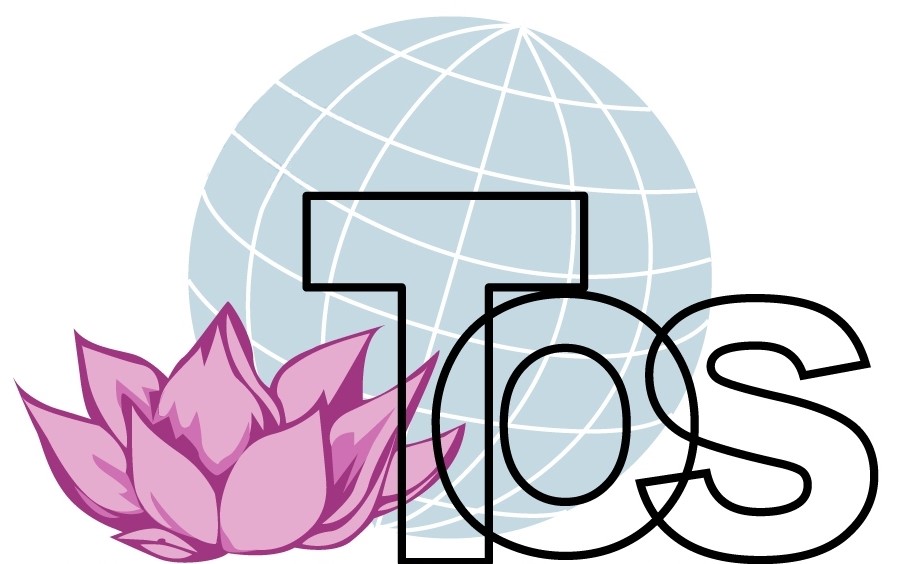Burma: Love and Kindness Must Win Over Everything
General Topics:
 The determination of Burma's Buddhist monks to bring about change non-violently in their country has awakened a civilian population long held in fear by the governing military. The monks are marching behind large banners saying "Love and Kindness must win over everything." Demonstrations have been growing in city after city as the monks have taken the leadership of protests which began in early September against the sudden rise in fuel, food, and transportation costs.
The determination of Burma's Buddhist monks to bring about change non-violently in their country has awakened a civilian population long held in fear by the governing military. The monks are marching behind large banners saying "Love and Kindness must win over everything." Demonstrations have been growing in city after city as the monks have taken the leadership of protests which began in early September against the sudden rise in fuel, food, and transportation costs.
The government of Burma (which changed the name of the country to Myanmar in 1990) calls itself the State Peace and Development Council (SPDC), but it has brought neither peace nor development. The sudden increase in the price of fuel, imposed overnight by the government without serious explanation, was one more example of the mismanagement of macro-economic issues by the military in power since 1962. Burma, a resource-rich country with a population of some 50 million, was once known as the rice bowl of Asia and a leading exporter of rice to the world market. Military control of the economy has led to such a fall in agricultural production that Burma must now import vast quantities of rice and was granted the status of a Least Developed Country by the UN in 1987. For, at least the last two decades, the military has grown rich through the drug trade and by selling timber to companies in Thailand, often owned by the Thai military. Now, Afghanistan has replaced the Golden Triangle as the chief source of opium, and the military must now make their money through corruption and their monopoly of oil and gas exports.
Ordinary Burmese find it increasingly difficult to make a living and local trade, hotels, restaurants and shops are increasingly owned by Chinese migrating from south China. Fear of popular unrest has motivated the government to move from the largest city, Rangoon, to create a new capital in the middle of nothing, Naypyiday. The government was already cut off from popular reality in Rangoon. In Naypyiday, the army has created an expensive bunker and tries to control the situation through plainclothes members of the security forces and government-sponsored militias such as the Union Solidarity and Development Association and the Swan Ah Shin. Among the older Burmese the military, known as the Tatmadaw, still has a certain consideration due to the myth of its role in the granting of independence in 1948.
Burma had been granted 'independence' on August 1st 1943 by the Japanese occupation Army, but that independence did not outlast the Japanese defeat. Burma was made permanently independent on January 4th 1948 because England withdrew from India and had no interest in holding on to territory which had been largely governed as an annex to the Indian Sub-continent. However, for the older Burmese, the Army is the symbol of the struggle for independence, and despite its brutality and economic mismanagement, conserves a certain mythical quality. Thus Aung San Suu Kyi, the pro-democracy leader, joins the name of her father, Aung San, one of the early Thirty Comrades independence leaders, to her own.
However, none of this respect carries over to the police-security forces nor to the newly formed militias. This explains the increased brutality of these militias because if there is a change of government, the security forces fear that they will not be protected from popular revenge.
The military and the security forces are in a bind concerning the leadership of the protests by Buddhist monks. Monks are both respected and feared. Burma is, by a great majority, a Buddhist country, though it is a Buddhism colored by a belief in non-Buddhist nature spirits, especially in the countryside. Monks are thought to have some influence over the world of spirits so that it is better not to offend a Buddhist monk who might revenge himself by sending sickness or a bad harvest. Thus, the military are fearful of monks while they do not fear students or pro-democracy urban intellectuals.
The previous large-scale movement against the military had taken place in 1988 and was led by Rangoon University students and urban, middle class professionals. Economic issues had been the motor coupled with a discontent with military mismanagement lasting from 1962. The demonstrations were brutally suppressed. Many students and young professionals left for the Thai frontier area where they joined the national minorities such as the Karen, Wa, and Kachin which had been in armed insurgencies working for greater autonomy or for independent states.
While some monks had participated in the 1988 movement, they had not taken a leadership role. Now, because some monks had been beaten in public by soldiers, the monks have started to play a visible public role. Although monks normally live a secluded monastic life, there is no theological reason for not playing a political role. Monks have played a key role in politics in Sri Lanka. The Burmese monks are of the same school of Buddhism as the Sri Lankan monks. It is still too early to know how skilful the Burmese monks are in political affairs. Will they be crushed by the military who fear being permanently displaced? Will pro-democracy civil leadership use the monk-led protests to demand democratic elections? Will the military leadership compromise to find a half-way house between military and civilian control? The road to Mandalay needs watching.
Rene Wadlow is the Representative to the United Nations, Geneva, of the Association of World Citizens
